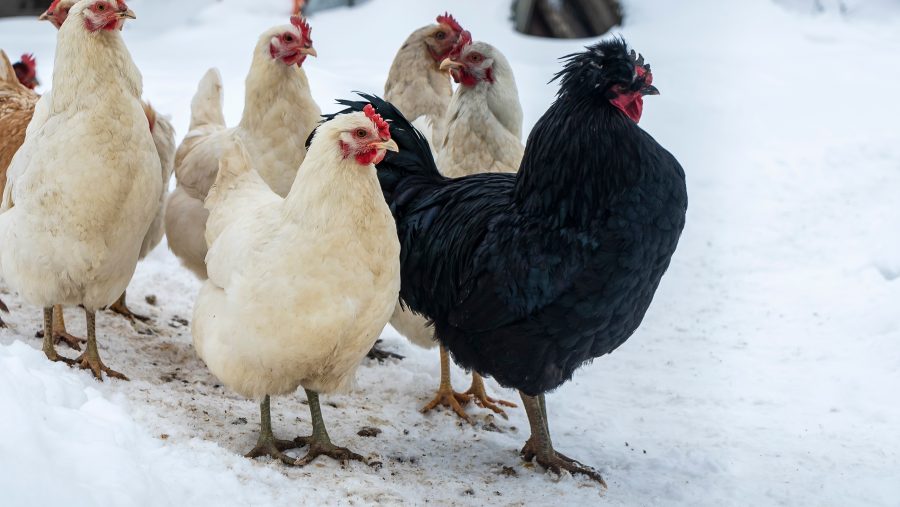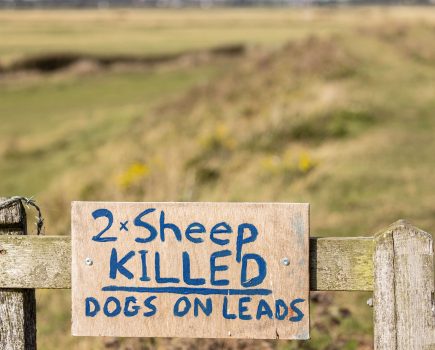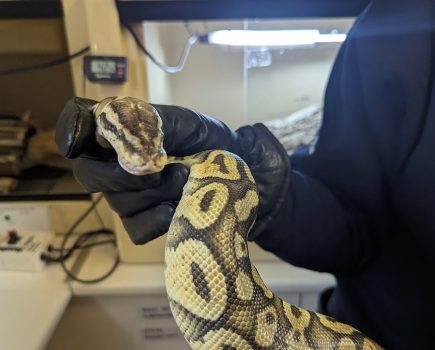Poultry vet, David Parsons, gives an update on the bird flu situation as winter gets underway…
Last night I attended a box meeting held by the Salisbury Poultry Club. Regrettably, no live birds because meeting the requirements of the new General Licence seems to have been designed to do little more than allow Defra to say we will now allow gatherings in England providing you meet the following requirements. Then ensure that following the requirements are positively scary so that nothing happens! No birds, but some lovely photos of the birds that would have been entered.
It was really good fun, listening to why that bird had been selected. Then, with blue glass bead in hand, selecting the one of three that appealed most. After, three rounds the winner with the most blue glass beads was a seven month old Rhode Island Red cockerel who along with his sister, thanks to some judicious handling as a youngster, has developed into a people cockerel unlike Mr Grumpy, the older cockerel in the flock. Paula Guley is the proud owner and recipient of the winner’s cup presented by Colin Fitton.
In the past, when live poultry were present, Mike Hatcher, came to judge the entries as well as impart a little of his extensive knowledge of the breeds or hybrids entered. Another reason I must try harder to interpret the new licence sensibly. Then I can learn more from Mike. But it is not just about the box show, it is catching up with friends and keeping abreast of all the local happenings which, if you are not present, pass you by. Avian influenza is still a concern which no doubt may result in the country protection zone being reintroduced with possibly a housing order included. However, I am not expecting avian influenza to be as big a problem this winter as it was last.
WILD BIRDS AND AVIAN FLU
The wild bird situation is also encouraging as the number of isolations across the UK is diminishing on a week by week basis. The number of dead is nothing like that seen in the previous twelve months.There has also been a shift in the species being affected. All of this is most likely a reflection of the development of a degree of natural immunity. Immune parents maybe infected which is most akin to being revaccinated although older parents may die. Youngsters from immune females will have some protective antibodies in the yolk. Thus, they will be more resistant for a few weeks after hatching and then they will become susceptible. Should they become infected some will become immune and others will die.
Immune birds even if they are infected will shed less virus and therefore overall the environmental challenge will decrease.Then add in environmental factors like rain and flooding and the amount of virus will be further diluted. Flooding does have a problem, in that, with very susceptible species such as turkeys, flocks can become infected by contaminated rainwater that creeps in under doors.
This article extract was taken from Practical Poultry in the January 2024 edition of The Country Smallholder. To read David Parsons’ article in full, you can buy the issue here.
To receive regular copies of The Country Smallholder magazine featuring more articles like this, subscribe here.
For FREE updates from the world of smallholding, sign up for The Country Smallholder newsletter here.








